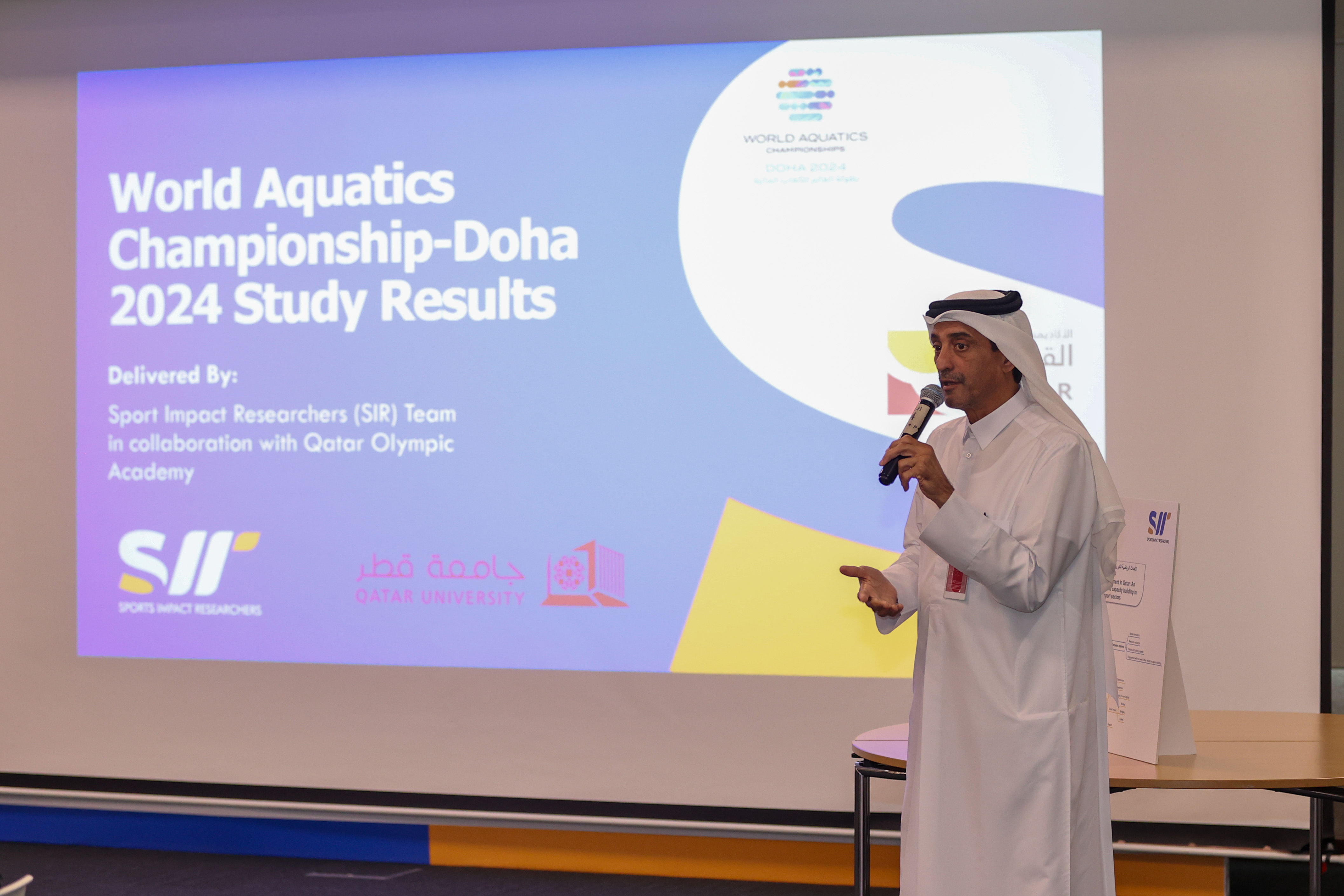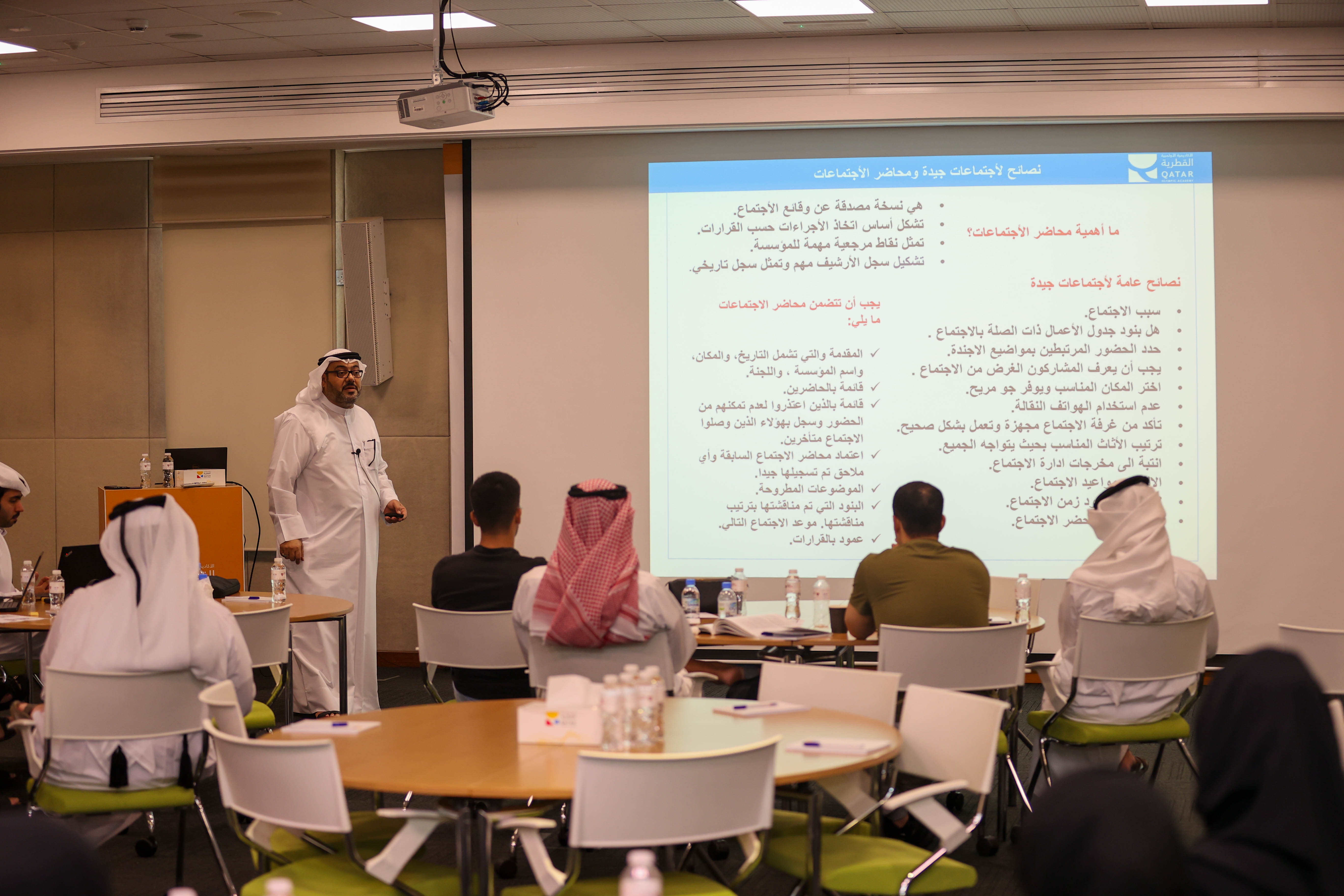Doha:
Qatar Olympic Academy concluded the Modern Management Course in Sports Institutions (Management 2), the second qualifying program to enter the Diploma in Sports and Olympic Institutions Management program held by the Academy this year in its thirteenth edition.
The Academy organizes this program in cooperation with the Olympic Solidarity at the International Olympic Committee, as part of a series of annual courses to educate the community about Olympic culture, which was held over five days during the period from the eighth to the twelfth of this October, with the participation of a large turnout of students interested in administrative work in the field of sports, both from inside and outside the State of Qatar, this program graduated many sports leaders at the level of the region in general and in the Gulf Cooperation Council in particular.
This course was presented by IOC-accredited lecturer Dr. Ali Al-Bakri, Director of the Diploma in Sports and Olympic Institutions Management Program, who is renown in this field.
In this course, Dr. Ali Al-Bakri talked about management skills in the field of sports, such as the benefits of good communication and effective communication, which leads to an increase in communication efficiency that leads to a decrease in the number of errors, increases the person's motivation for higher achievements, communication reduces the costs of the institution and reduces work errors, which facilitates understanding the wishes of shareholders.
He also talked about work environment management and time management in sports institutions through meetings between work teams, whether they are employees or various stakeholders, and what is the importance of time management during any work in order to reach the desired success, in addition to other topics, most notably technical management, activities and events management, as well as human resources management.
It is worth mentioning that this course is considered the second part of the Sports Management Diploma Program, while the first part was under the name of the Principles of the Olympic Movement in the Sports System course, the course was presented by the Omani lecturer, Mr. Hisham Al-Adwani, Vice President of the Oman School Sports Federation, Director of the Sports Management Diploma Program at the International Olympic Committee, and the international lecturer in sports management science accredited by the International Olympic Committee, who held many positions in the field of administrative work in Omani sports.
More news

Research about hosting the World Aquatics Championship 2024
Doha: The Qatar Olympic Academy invited the Sports Impact Researchers (SIR) team from Qatar University who are currently conducting research about organizing mega sports events in Qatar and their impact on public value creation and capacity building in the higher education and sport sectors. Their research is funded by the Qatar Research and Development Innovation Council (QRDIC) for a period of three years.

Conclusion of chapter II, "Strategic planning," of the sports management diploma programme
Doha: Today, Thursday, at the headquarters of the Qatari Olympic Academy, the lectures of the second chapter of the Advanced Diploma Programme for the Management of Sports and Olympic Institutions, entitled "Strategic planning," which was given by Professor Thierry Zent, Dean of the Faculty of Sports Sciences of the University of De Louvain, Belgium, and the Executive Director of the MEMOS Professional Master's Programme of the International Olympic Committee.

Launch of the new version of the diploma programme for the management of sports and Olympic institutions
Doha: The first chapter of the 14th edition of the Advanced Management Diploma Programme for Sports and Olympic Institutions, in partnership with the International Olympic Committee, was launched at the headquarters of the Qatari Olympic Academy for the fourteenth year in the presence of approximately 34 students from various disciplines and expertise from various Gulf and Arab States

